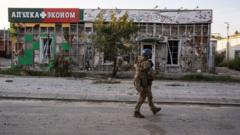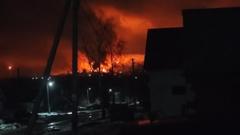**A fresh military agreement between Britain and Germany reflects increasing concerns over global security developments, particularly following Russia's military actions in Ukraine.**
**Britain and Germany Sign New Defense Partnership amid Rising Tensions with Russia**

**Britain and Germany Sign New Defense Partnership amid Rising Tensions with Russia**
**New defense pact aims to enhance joint military operations and bolster European security.**
Britain and Germany have solidified a defense pact aimed at enhancing military cooperation and developing advanced weaponry, signaling a significant response to rising security threats in Europe, notably from Russia. The agreement will see British and German forces collaborating more closely, with joint military exercises planned on NATO's eastern flank, right alongside Russian borders, as well as guarding critical underwater communication cables that traverse the North Sea.
Germany's P-8 surveillance aircraft, designed to track and neutralize submarines, are set to be stationed at an air base in Scotland as part of this heightened military collaboration. John Healey, Britain’s defense secretary, characterized this agreement as a “milestone moment” in the bilateral relationship, asserting that it will enhance security for Europe.
As the signing ceremony approaches in London this Wednesday, German Defense Minister Boris Pistorius emphasized the necessity of not taking European security lightly. He remarked that Russia's ongoing conflict with Ukraine, coupled with its escalating arms production and hybrid attacks on Eastern European allies, pose a serious threat that cannot be overlooked.
The pact is expected to bolster the European side of NATO amidst growing worries in Europe regarding potential geopolitical instability, particularly in light of the upcoming U.S. presidential elections. Concerns have been raised that a victory for Donald J. Trump could impact the United States' ongoing support for Ukraine, especially following his previous comments suggesting leniency towards Russian actions against NATO member states that do not contribute sufficiently to the alliance. All these factors underline the renewed urgency for European nations to fortify collective defense measures and security mechanisms in the face of uncertainty.





















